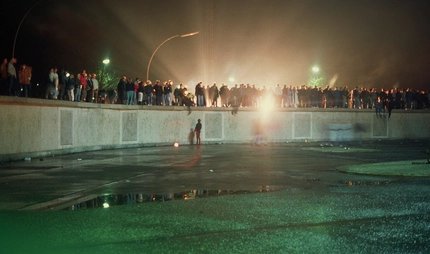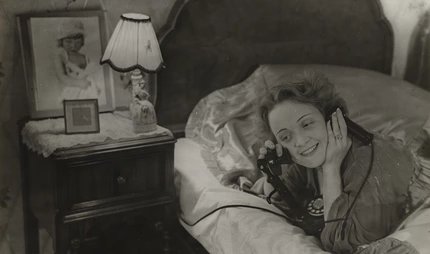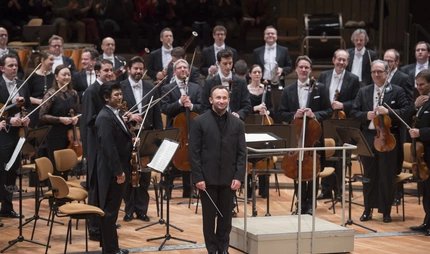
With courage and humour Berlin has already made it through many a crisis. That is why we have taken a look at the past 600 years of history for you and discovered many cheerful and strong stories that are unmistakable for Berlin, for Berliners. Let us inspire you.
Voice of the Opposition
"Attention, attention, this is Radio 100, Berlin's first independent, private radio station." With these words, a private alternative radio station started broadcasting on the West German side, near the Berlin Wall, on 1 March 1987. Soon one of its broadcasts on the other side of the Wall is being watched very closely: The Stasi registers where everywhere the new monthly broadcast "Radio Glasnost - außer Kontrolle" (Radio Glasnost out of control) can be heard on GDR territory. Because "Radio Glasnost" is a mouthpiece for the GDR opposition in West Berlin and the audience among GDR citizens is growing rapidly.
Catch Phrase of Hope
Glasnost in Russian means "openness, transparency, publicity" and is a catchword for the new policy introduced in the Soviet Union by the then Secretary General Mikhail Gorbachev. This new policy of Gorbachev also includes another catchword: perestroika, which means "transformation, restructuring", i.e. the process of rebuilding and modernising the socialist social system. Perestroika and glasnost were buzzwords of hope for the opposition in the GDR from the mid-1980s onwards. Gorbachev himself became a beacon of hope and even today his brother kiss with Erich Honecker is one of the most symbolic paintings at the East Side Gallery.

Smuggled tapes spread ideas for reform
The opposition members smuggle their reform ideas from East Germany across the border to the West using tapes for "Radio Glasnost". They also use them to openly describe the reality in the GDR. The SED leadership tried to counteract this and installed jamming transmitters on the Wall - in vain: Radio 100 sent "Radio Glasnost" from changing stations until the other side gave up.
The criticism of the SED makes "Radio Glasnost" even more famous
With a negative commentary in the party newspaper Neues Deutschland, the SED makes "Radio Glasnost" all the more popular among East German citizens, thereby scoring an own goal. By the beginning of 1990, "Radio Glasnost" informed citizens in East Berlin in 27 programmes about the activities of the opposition throughout the GDR and played music by officially unwanted GDR songwriters, punk bands and independent groups.
Today, a narrow, high stele in front of house no. 131 in Potsdamer Straße reminds us that the fall of the GDR dictatorship in 1989 would hardly be conceivable without the activities of West German media in the exciting years before the fall of the Wall.
Visit other Sites of the Peaceful Revolution, such as Alexanderplatz or the Haus des Rundfunks, the Dietrich Bonhoeffer House or the Gethsemanekirche.





